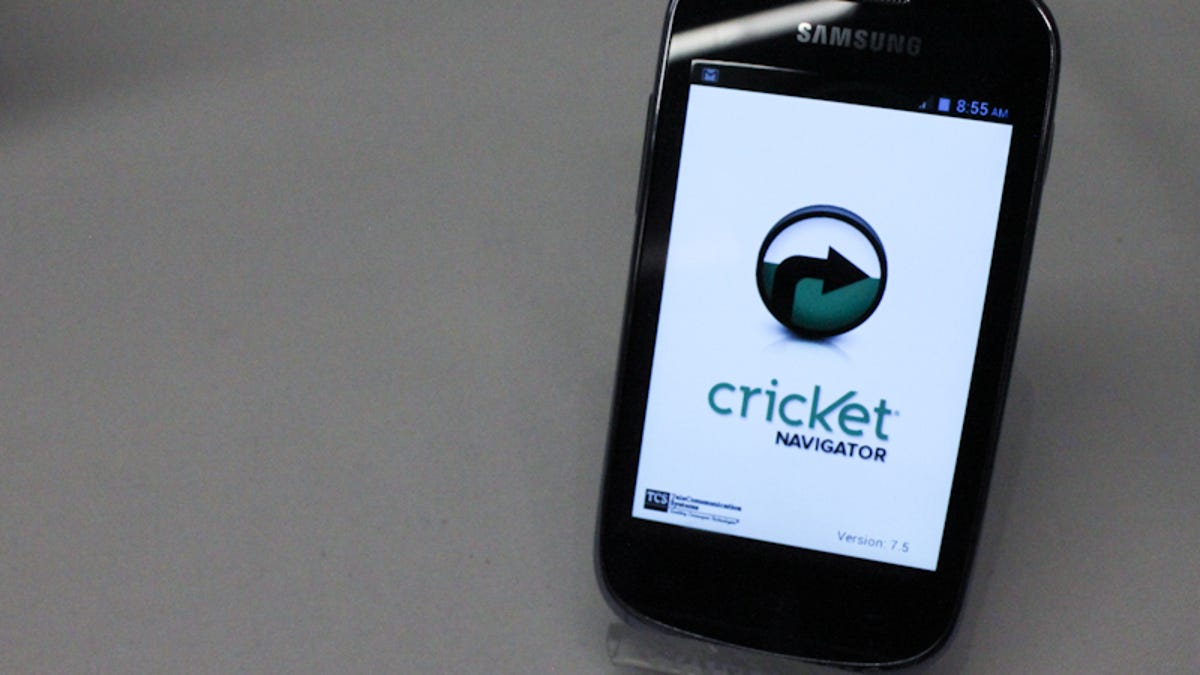Will AT&T finally get serious about prepaid with Leap deal?
The $1.2 billion deal nets AT&T a decent-size prepaid business. But the carrier may just be in it for the spectrum.

AT&T's $1.2 billion acquisition of regional prepaid carrier Leap Wireless suggests it may be moving into the no-contract business in a big way.
But the deal may ultimately end up being a spectrum land grab by AT&T, which has shown an eagerness to shore up its war chest of wireless licenses.
"It's mostly about spectrum," said Craig Moffett, an analyst at Moffett Research. "They keep Leap's spectrum out of T-Mobile's hands. Most people thought T-Mobile would be the eventual buyer."
AT&T's acquisition of Leap Wireless, which runs a prepaid service called Cricket in a number of rural markets, marks the end of uncertainty for the smaller carrier. Leap was long thought to be a natural merger partner with MetroPCS. But after several failed attempts at a deal, T-Mobile scooped up MetroPCS, leaving Leap out in the cold.
It's just the latest deal in an industry that has seen tremendous shakeups over the last several months, including the recent completion of Japanese carrier SoftBank's acquisition of Sprint, as well as Sprint's purchase of Clearwire.
AT&T, meanwhile, will inherit a legitimate prepaid business with more than 5.2 million customers. That means the company, like it or not, will be moving to prepaid in a big way.
AT&T said it would maintain the Cricket brand, expand its presence throughout the U.S., utilize its distribution channels, and provide access to AT&T's 4G LTE network. An AT&T representative told CNET that Cricket customers would be able to keep their rate plans for as long as they want to, even if they upgrade to another Cricket device. But the representative wasn't that forthcoming about AT&T's plans to expand the Cricket service.
AT&T isn't likely to put a lot of resources into Leap's current turnaround plan. Leap lost a net 93,037 customers in the first quarter, compared with a gain of 258,000 a year earlier. It also posted a net loss of $109.6 million. Leap's service operates on a 3G cellular technology called CDMA, which is incompatible with AT&T's own network.
As such, AT&T may likely be eager to get customers off Leap's service so it can use its spectrum, which the company says is compatible with its own frequencies. That spectrum is crucial to companies such as AT&T and Verizon Wireless because it enables them to handle more wireless traffic.
AT&T's own prepaid efforts have borne little fruit as it focuses on the traditional -- and more lucrative -- contract business. The company offers a Go prepaid service, and recently began testing out a new service called Aio Wireless in select markets. But in the last quarter, the company posted a net loss of 184,000 prepaid customers.
While T-Mobile's acquisition of MetroPCS accelerated T-Mobile's no-contract strategy, AT&T isn't likely to budge from its core business when it swallows up Leap. Still, AT&T is expected to make a go of the prepaid business, even if it's to appease regulators, Moffett said.
AT&T expects the deal, which is still subject to regulatory review, to close in six to nine months. The company is likely hoping to see less resistance than last time, when regulators blocked its attempt to acquire T-Mobile. Public interest group Free Press already began firing shots at AT&T, claiming the deal would lead to higher prices, fewer choices, and lost jobs.
AT&T hopes to avoid the same level of drama with the Leap deal. But that may depend on how heavily it commits itself to the prepaid business.

